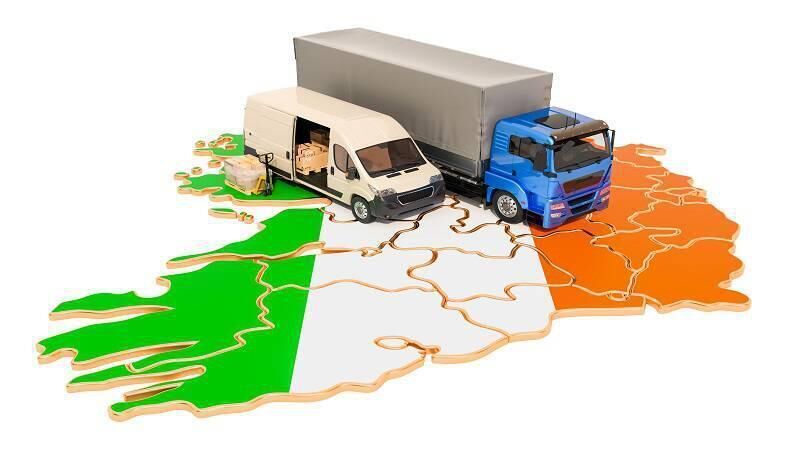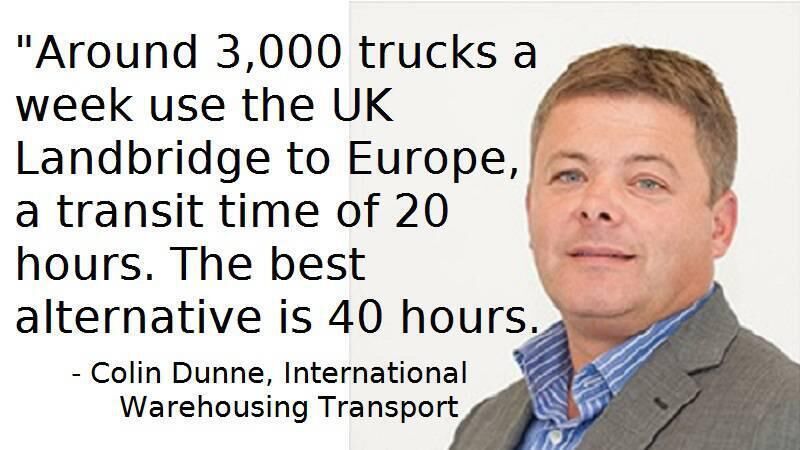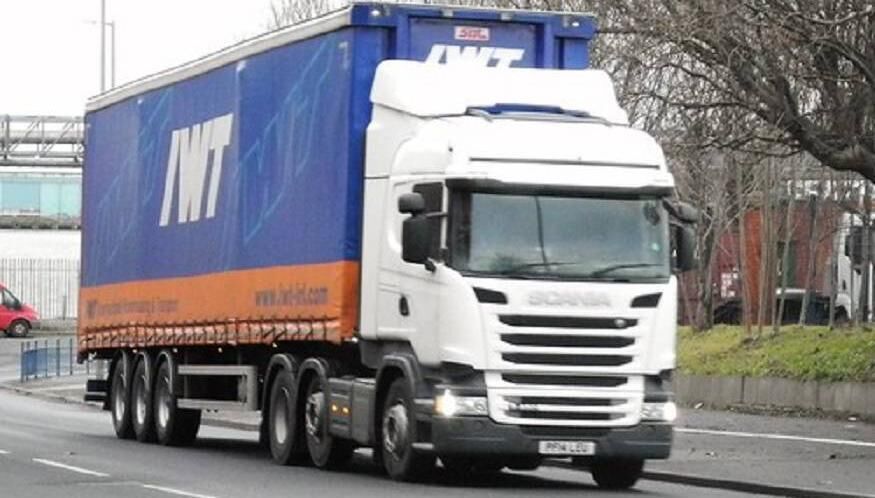Ireland is far better prepared for Brexit than the UK

“On the Irish side, due to the best endeavours of the transport and shipping industries, as well as the service providers sector, we are generally very well prepared for the new Customs regulations."
, joint managing director of International Warehousing Transport, talks to John Daly
While Ireland may face some significant obstacles when Brexit becomes a reality on January 1st, we are in a far better state of preparation than our UK business counterparts.
“It’s like night and day the difference between our two countries, the lack of awareness in the UK is very concerning, to say the least,” says Colin Dunne, joint managing director of International Warehousing Transport, a wholly-owned Irish company with offices in Dublin and Rotterdam and a leading provider of European and global logistics services.
“On the Irish side of things, due to the best endeavours of the transport and shipping industries, as well as the service providers sector, we are generally very well prepared. Certainly, there is still a lag with some importers and exporters who have not yet come on board, but generally a sense of solid preparedness does prevail,” he says.

Changing a system that has served both countries well for many years will undoubtedly bring its challenges, especially in the early days, but will eventually settle into the new normal that 2021 will bring.
“If you move from an unregulated system that has pertained for decades into a whole new structure and apparatus of controls and organisation, there will be interruptions to supply chains - much of which will depend on whether it turns out to be a light tough Brexit or a heavy touch. Overall, though, the market will always find its own way of figuring these things out.”
IWT’s reputation as a progressive logistics innovator was recognised at the 2015 Irish Logistics & Transport Awards where it was awarded the ‘Logistics Company of the Year award’, in addition to being nominated in the ‘Green Mover’ category. Given there will be new customs paperwork requirements and financial guarantees when transiting via Landbridge, companies may consider it advisable to appoint an agent for assistance with such activities, and Authorised Economic Operator accredited companies like IWT are considered to be the most preferable choice.
“Because our business is so international and with long experience in moving cargo around the world, we have a very strong proficiency in customs and regulations requirements. We have always had a customs clearance department, and when tariffs moved out of the European Union thirty years ago, most people in our space just didn’t have that requirement whereas we always did. It is just about resourcing additionally for the business that we know very well - which does give us an advantage.”

In 2019, IWT moved over 1 million tonnes of freight - a figure whose size is underlined by the fact that the average container takes 20 tonnes.
Whatever way Brexit presents on January 1st, the business of commerce will adjust to the new realities, conform to new regulations and continue supplying good and services to the needs of populations in Ireland, the UK and the EU, he believes.
“There is no doubt that business will adjust to the changes over time, and, again, unlike our UK counterparts, we are already very prepared for this. Dublin Port, for instance, which probably handles two-thirds of everything that comes into the country, has already seen significant amounts of money and time preparing for this.
“Looking at the port today bears no resemblance to what it was 12 months ago, with up to 25% of the available landbank being used to keep the Brexit carriages moving smoothly. And it is exactly these kinds of preparatory measures that have been taken over the past year that are going to make all the difference in how we successfully cope with the new reality on January 1st.”
Rather than focus on the immediate challenges of new customs and regulation coming next month, Colin Dunne instead looks further out to an era of opportunity for Ireland.
“No doubt about the great potential for Ireland. Consider the fact that there’s probably around 3,000 trucks a week that go via the UK landbridge to get rapidly and quickly to market, usually for a high-value product that has a requirement for speed.
“So you’re talking about a transit time of 20 hours to get there using the UK option, whereas the quickest alternative, based on direct services, would be 40 hours. While the time is doubled, it is a lot more cost-effective and if people can redesign their supply chains, they can factor in that extra transit time.
“There are many alternative routes that can work, but require importers and exporters to make changes in supply chains.”
And while this situation is not what people would desire today, it will become the new norm for the market once it is robust and has schedule integrity.
“In 2020 Ireland, I’ve never seen as many direct services available to so many new ports over my 30 years in this industry, and that is a reflection of the market already finding its new level to adapt and be ready to seek opportunity as a result of Brexit.”
See HERE for Department of Transport's guide, 'Brexit and Transport: What you need to know'.











